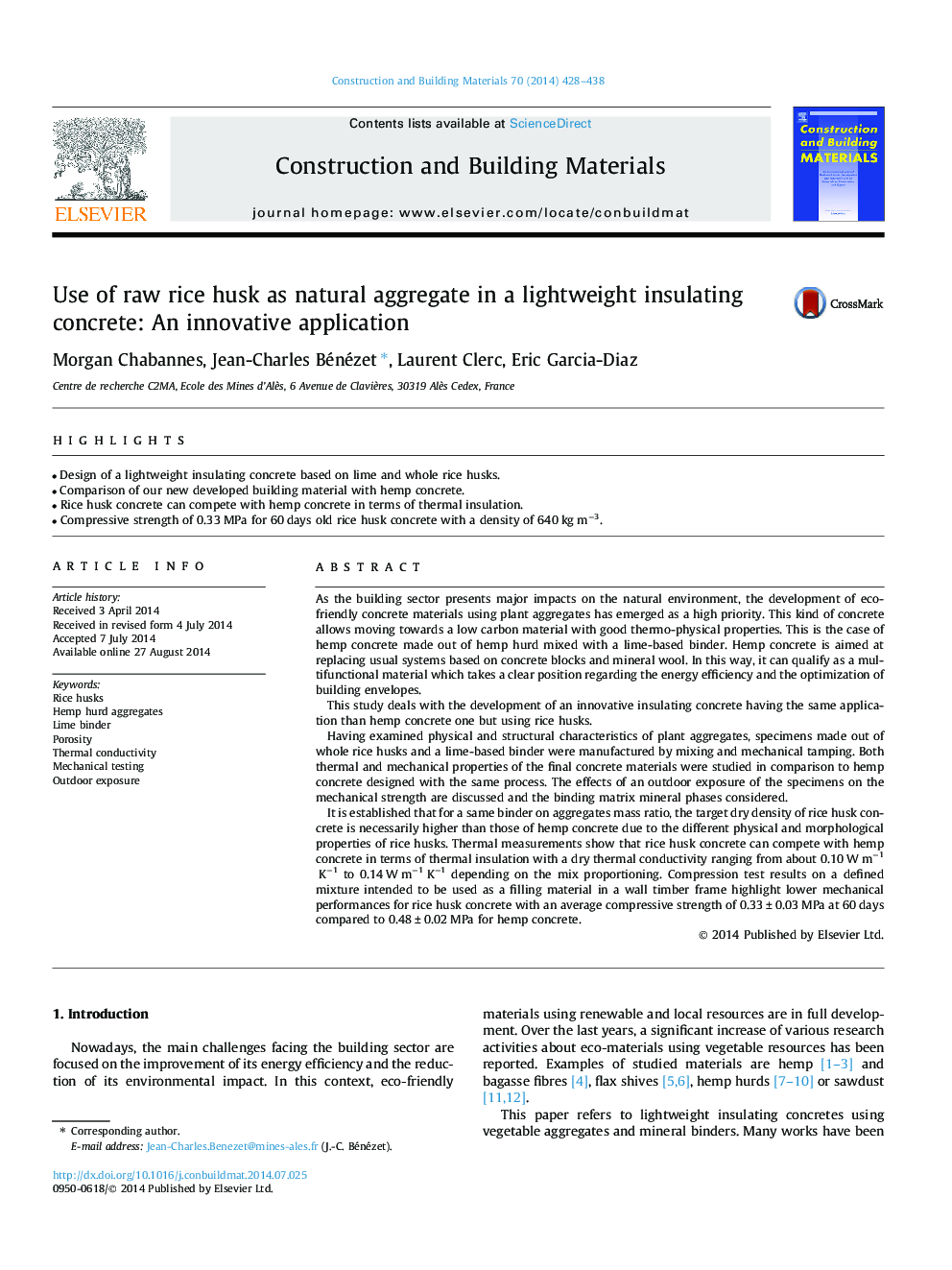| Article ID | Journal | Published Year | Pages | File Type |
|---|---|---|---|---|
| 257374 | Construction and Building Materials | 2014 | 11 Pages |
•Design of a lightweight insulating concrete based on lime and whole rice husks.•Comparison of our new developed building material with hemp concrete.•Rice husk concrete can compete with hemp concrete in terms of thermal insulation.•Compressive strength of 0.33 MPa for 60 days old rice husk concrete with a density of 640 kg m−3.
As the building sector presents major impacts on the natural environment, the development of eco-friendly concrete materials using plant aggregates has emerged as a high priority. This kind of concrete allows moving towards a low carbon material with good thermo-physical properties. This is the case of hemp concrete made out of hemp hurd mixed with a lime-based binder. Hemp concrete is aimed at replacing usual systems based on concrete blocks and mineral wool. In this way, it can qualify as a multifunctional material which takes a clear position regarding the energy efficiency and the optimization of building envelopes.This study deals with the development of an innovative insulating concrete having the same application than hemp concrete one but using rice husks.Having examined physical and structural characteristics of plant aggregates, specimens made out of whole rice husks and a lime-based binder were manufactured by mixing and mechanical tamping. Both thermal and mechanical properties of the final concrete materials were studied in comparison to hemp concrete designed with the same process. The effects of an outdoor exposure of the specimens on the mechanical strength are discussed and the binding matrix mineral phases considered.It is established that for a same binder on aggregates mass ratio, the target dry density of rice husk concrete is necessarily higher than those of hemp concrete due to the different physical and morphological properties of rice husks. Thermal measurements show that rice husk concrete can compete with hemp concrete in terms of thermal insulation with a dry thermal conductivity ranging from about 0.10 W m−1 K−1 to 0.14 W m−1 K−1 depending on the mix proportioning. Compression test results on a defined mixture intended to be used as a filling material in a wall timber frame highlight lower mechanical performances for rice husk concrete with an average compressive strength of 0.33 ± 0.03 MPa at 60 days compared to 0.48 ± 0.02 MPa for hemp concrete.
